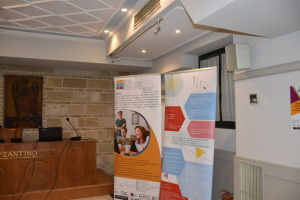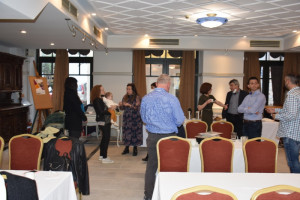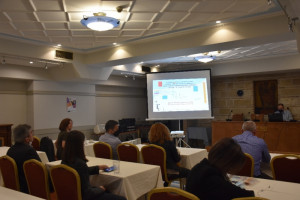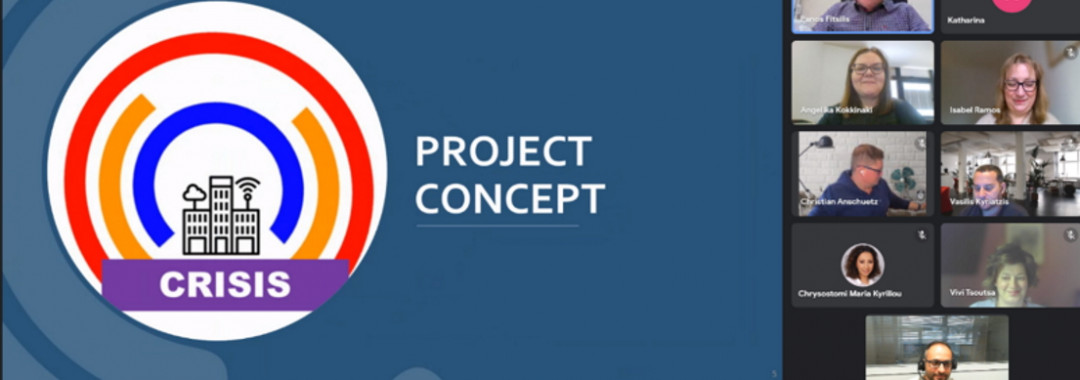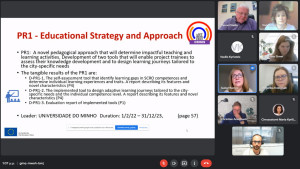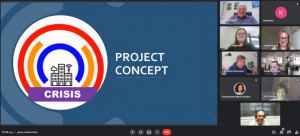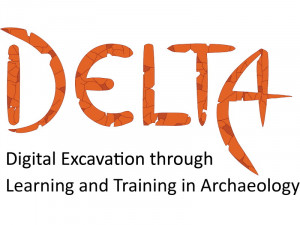 On the 31st March and 1st April 2022, the DELTA consortium participated in person, in the sixth transnational meeting of the project in Brno, Czech Republic, hosted by the Department of Archaeology and Museology of the Masaryk University (project partner).
On the 31st March and 1st April 2022, the DELTA consortium participated in person, in the sixth transnational meeting of the project in Brno, Czech Republic, hosted by the Department of Archaeology and Museology of the Masaryk University (project partner).
The DELTA project – Digital Excavation through Learning and Training in Archaeology, is funded under the program Erasmus + / KA2 / Strategic Partnerships for Higher Education. The project is coordinated by the DAISSy research group of the Hellenic Open University (EAP) and is implemented by a consortium of four partners – Universities from three countries (Greece, Italy and Czech Republic). Project DELTA aims to design and develop a course that combines the physical space of an archaeological excavation with the digital space of online learning. With this course, students of Archaeology will be able to improve update their knowledge and skills and develop digital and 21st century skills in particular.
The meeting started with an overview of the project and its progress by Hellenic Open University. The DELTA consortium has decided after to provide again this year the online course entitled “Digital Excavation”, attracting 580 learners. The course will complete on the 23nd May 2022. HOU, the Intellectual Output II leader, presented the progress of the MOOC 2022, the first grade results, as well as other points of consideration in tutoring in platform. All partners as developers of each Module presented the status of work in the translation done in each module (IO2/A3). Masaryk University presented the finalization steps in DELTA Teaching Handbook (IO1/A3) and in Policy recommendations document (IO1/A5). The second day of the in-person meeting included equally important presentations, regarding the organization of the Final meeting in Athens (2 and 3 June 2022) that will be hosted by National and Kapodistrian University of Athens as well as the planning of the Final Conference in Athens (4th June 2022) that will be organized by Hellenic Open University, with the active participation and contribution by all partners. Presentations on the procedure in finalizing the DELTA project on important aspects like communication/dissemination policy, financial & administrative issues and exploitation of the project results of DELTA, were conducted.
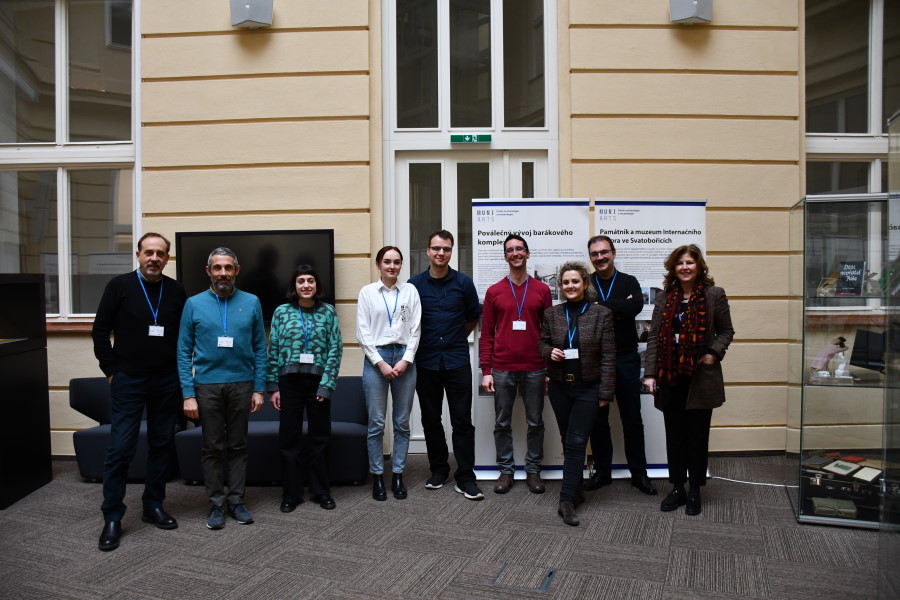
More information on the DELTA project and other news of DAISSy research group -Hellenic Open University:
- Website : http://www.project-delta.eu/ – http://daissy.eap.gr/en/
- Facebook : @projectdeltaeu – @DAISSyResearchGroup
- Twitter : @deltaprojecteu – @daissy_research
- Email : info@daissy.eap.gr

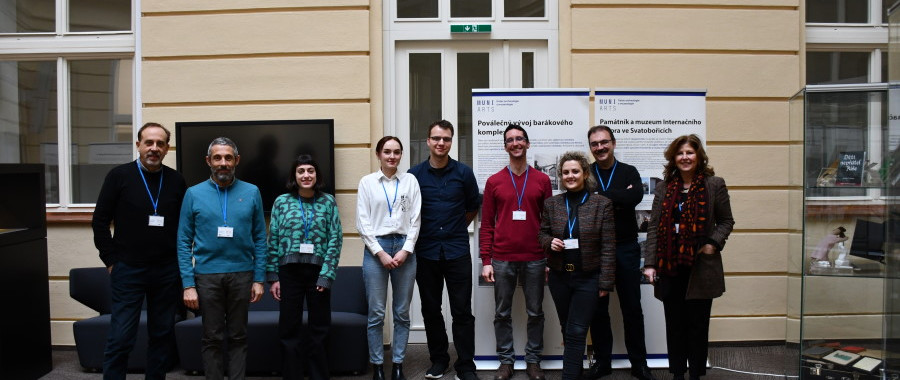
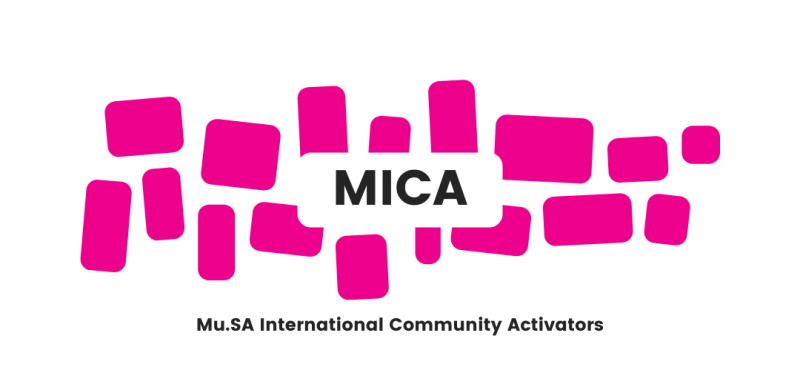
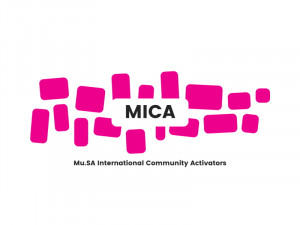 The DAISSy research group of the Hellenic Open University (
The DAISSy research group of the Hellenic Open University (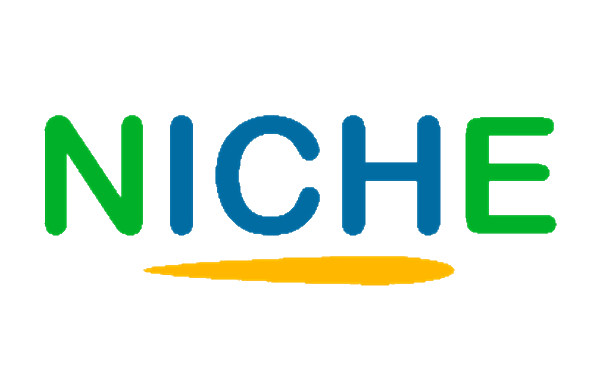
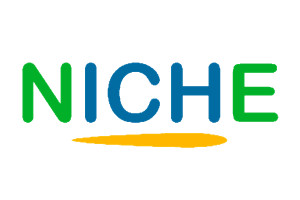 Η ερευνητική ομάδα DAISSy του Ελληνικού Ανοικτού Πανεπιστημίου σας προσκαλεί να δηλώσετε συμμετοχή στο Εθνικό πιλοτικό πρόγραμμα που διοργανώνει με τίτλο “Εκπαίδευση για την ενίσχυση της επιχειρηματικότητας στην Άυλη Πολιτιστική Κληρονομιά”, στο πλαίσιο του έργου
Η ερευνητική ομάδα DAISSy του Ελληνικού Ανοικτού Πανεπιστημίου σας προσκαλεί να δηλώσετε συμμετοχή στο Εθνικό πιλοτικό πρόγραμμα που διοργανώνει με τίτλο “Εκπαίδευση για την ενίσχυση της επιχειρηματικότητας στην Άυλη Πολιτιστική Κληρονομιά”, στο πλαίσιο του έργου 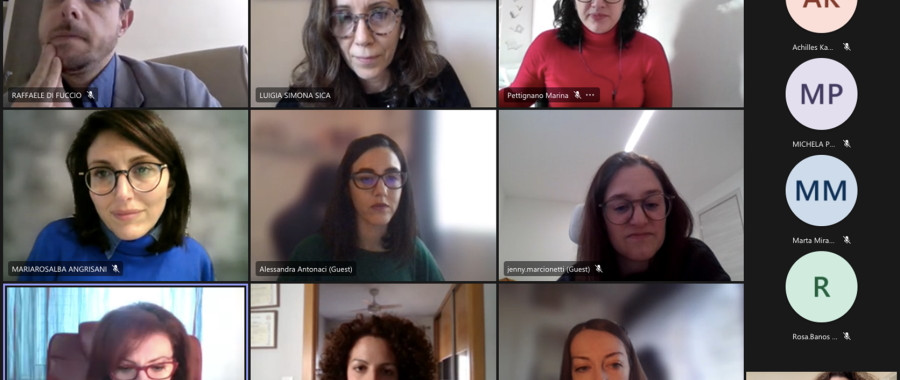
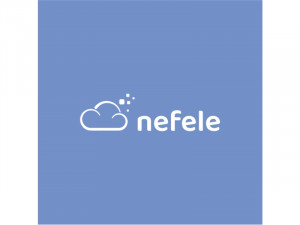 The inaugural online meeting of the NEFELE project, co-financed by the European Commission Erasmus +, took place on 16 February 2022 in Naples, Italy. The DAISSy research team of the Hellenic Open University (http://daissy.eap.gr/en/) participates in the activities of the new project, which is co-financed by the Erasmus + 2021-2027 program.
The inaugural online meeting of the NEFELE project, co-financed by the European Commission Erasmus +, took place on 16 February 2022 in Naples, Italy. The DAISSy research team of the Hellenic Open University (http://daissy.eap.gr/en/) participates in the activities of the new project, which is co-financed by the Erasmus + 2021-2027 program.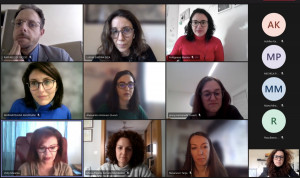
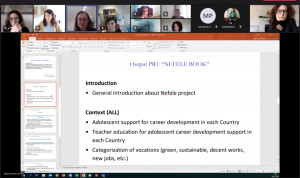
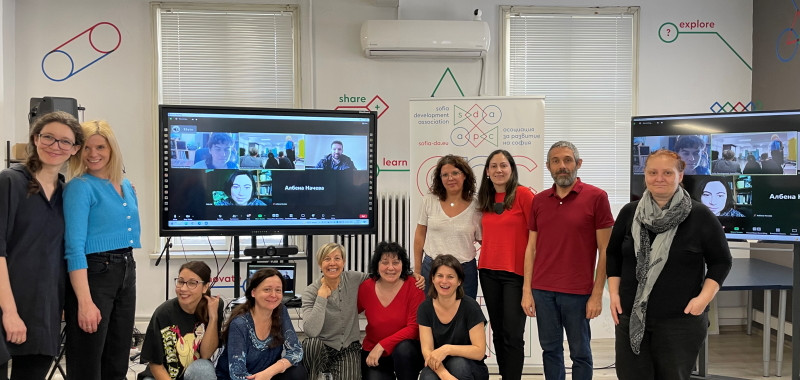
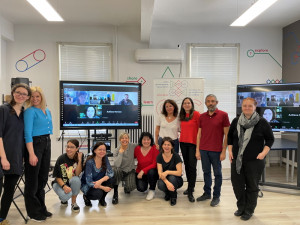 The DAISSy research group of the Hellenic Open University (
The DAISSy research group of the Hellenic Open University (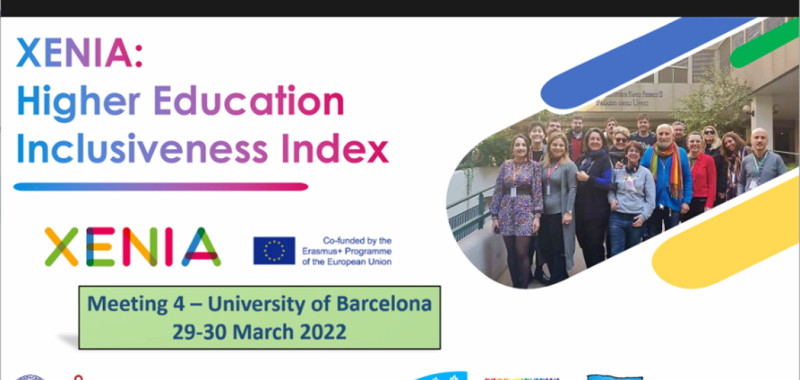
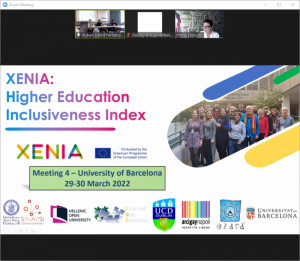 The DAISSy Group of Hellenic Open University participated in the 4th Transnational Meeting of the project XENIA, in Barcelona, 29-30 March 2022. The meeting was organized at the University of Barcelona (Deparment of Psychology) and was held in hybrid mode, with both in-person and remote attendees.
The DAISSy Group of Hellenic Open University participated in the 4th Transnational Meeting of the project XENIA, in Barcelona, 29-30 March 2022. The meeting was organized at the University of Barcelona (Deparment of Psychology) and was held in hybrid mode, with both in-person and remote attendees.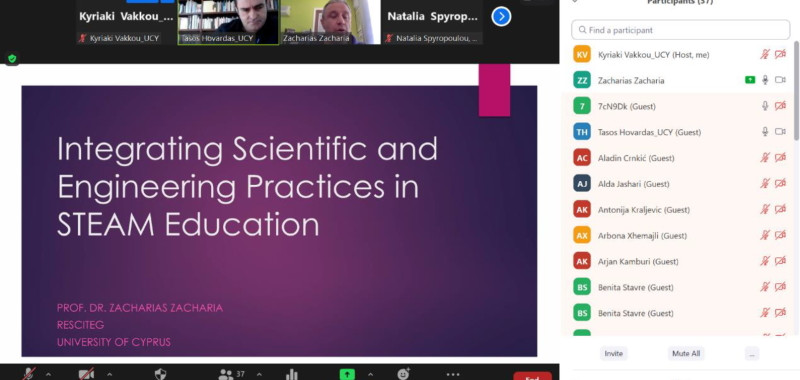
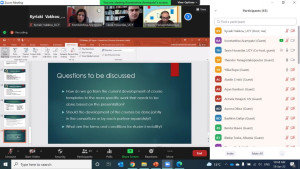
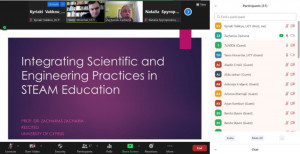
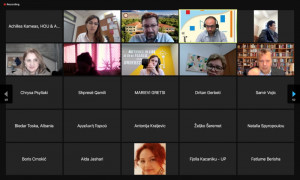
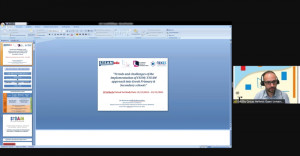

 Την Τετάρτη 16/3/2022 πραγματοποιήθηκε η εκδήλωση απονομής πιστοποιητικών ειδίκευσης ψηφιακών ικανοτήτων στελεχών έξυπνων πόλεων στα πλαίσια του έργου SmartDevOps (
Την Τετάρτη 16/3/2022 πραγματοποιήθηκε η εκδήλωση απονομής πιστοποιητικών ειδίκευσης ψηφιακών ικανοτήτων στελεχών έξυπνων πόλεων στα πλαίσια του έργου SmartDevOps (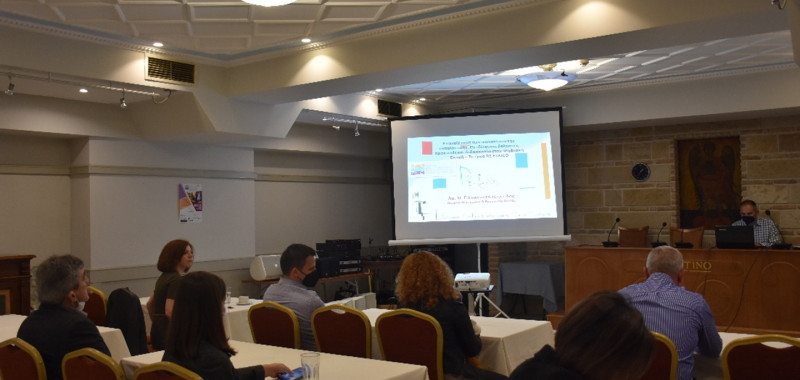
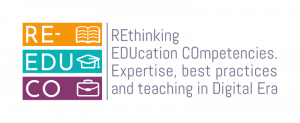 On Friday, April 1 2022, from 18:00 to 20:00, the DAISSy research team of the Hellenic Open University, organizes the live event entitled “Digital culture as a means of developing students and teachers” to disseminate the results of the RE-EDUCO (REthinking EDUcation COmpetencies. Εxpertise, best practices and teaching in Digital Era) project. The RE-EDUCO project aims to strengthen the role of digital culture as a means to improve the growth opportunities for students and teachers, widening their choices in private and professional life, through research, exchange of good practices, training and creative activities.
On Friday, April 1 2022, from 18:00 to 20:00, the DAISSy research team of the Hellenic Open University, organizes the live event entitled “Digital culture as a means of developing students and teachers” to disseminate the results of the RE-EDUCO (REthinking EDUcation COmpetencies. Εxpertise, best practices and teaching in Digital Era) project. The RE-EDUCO project aims to strengthen the role of digital culture as a means to improve the growth opportunities for students and teachers, widening their choices in private and professional life, through research, exchange of good practices, training and creative activities.